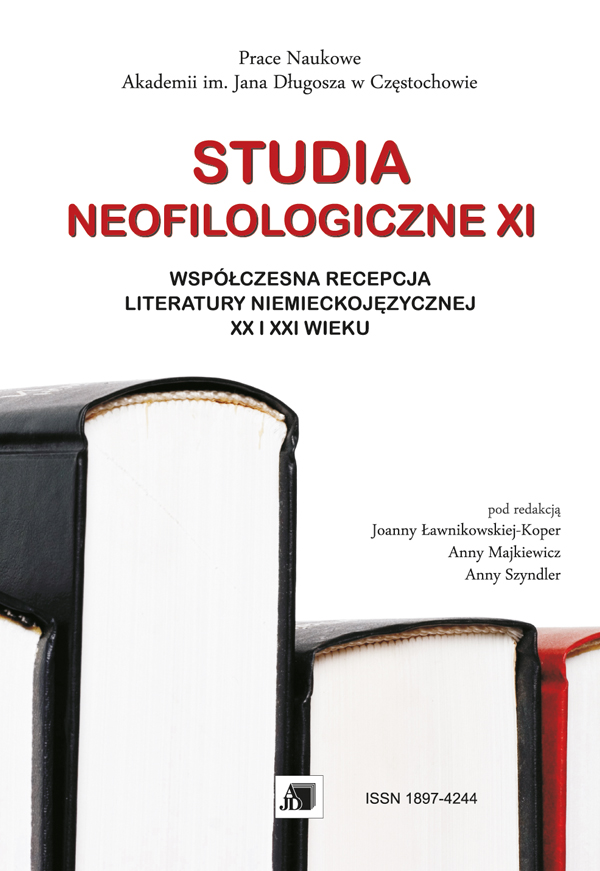CZARNA LEGENDA FRIEDRICHA NIETZSCHEGO. PRZYCZYNEK DO POLSKIEJ RECEPCJI FILOZOFA-POETY
The Black Legend of Friedrich Nietzsche
Author(s): Grzegorz KowalSubject(s): Philosophy, Language and Literature Studies, Studies of Literature, Philosophical Traditions
Published by: Uniwersytet Jana Długosza w Częstochowie
Keywords: Friedrich Nietzsche; reception; black legend
Summary/Abstract: The reception of Nietzsche is a complex phenomenon. There is both a legend of golden light as well as one that is immersed in black darkness. The author proposes that if legends – from a cultural (symbolic) perspective are a set of systemized opinions, judgments and images about a given person, a set that is broadcast widely by the mass-media, science and Art – then conversely, the author wants to explore whether or not a dark legend consists of pejorative judgments that shed an unfavourable light on a person. It is important to note that such legends have little to do with either scientific or historical truth much less common sense. Although documented facts may contradict, a legend may continue to thrive unobstructed. Herein is the situation of Nietzsche in Polish culture. The dark story takes its strength from the forgeries made by Nietzsche’s sister, Elisabeth Förster-Nietzsche as well as from various trials to make the philosopher either a patron or a precursor of far-right movements, including fascism and national socialism. The black legend of Nietzsche is also rooted in knowledge of his conception mediatized through the atmosphere of the epoch and not on knowledge of his writings. As a result, Nietzsche’s thought has been understood in a simplistic, slogan-like way. The controversial and provocative character of Nietzsche’s diagnoses and theses has also contributed to his being given “a negative etiquette”. His way of philosophizing, his being a “polemical philosopher” as well as his mental illness (he spent eleven years of his life under the care of his mother and sister) have also strengthened the dark side of his legend. And although the genuine analysis of his texts does not allow for discrediting his person or for understanding him in terms of the black legend he has acquired, Nietzsche till this day is associated with nationalism, Nazism, racism, anti-Semitism, irrationalism, decadents, anarchism, nihilism and imperialism.
Journal: Prace Naukowe Akademii im. Jana Długosza w Częstochowie. Studia Neofilologiczne
- Issue Year: XI/2015
- Issue No: 11
- Page Range: 101-119
- Page Count: 19
- Language: Polish

